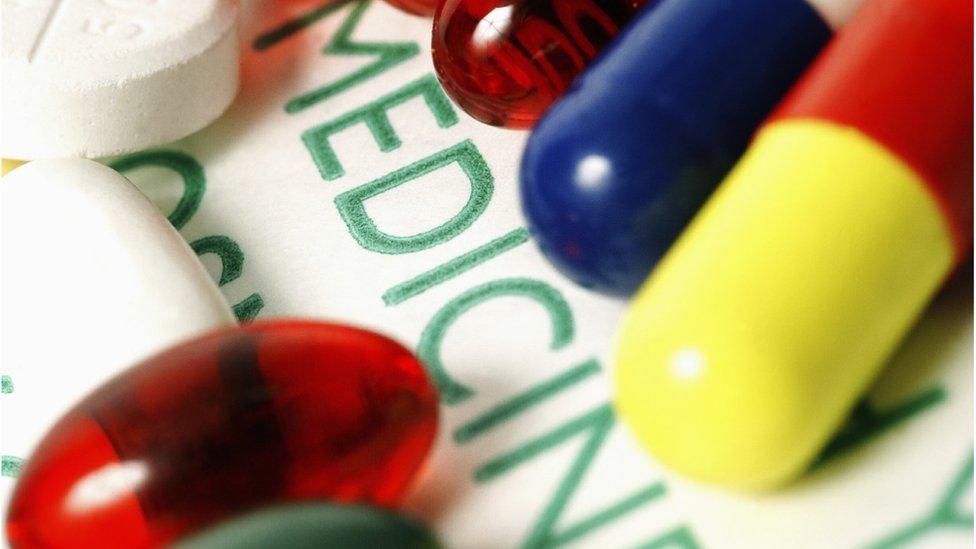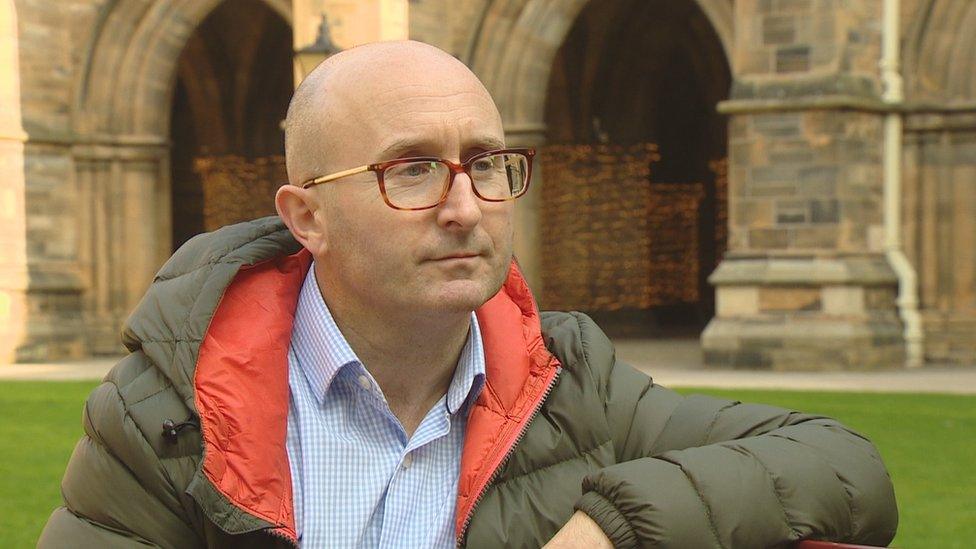Bipolar patients 'could be on the wrong drugs'
- Published

A quarter of patients with bipolar disorder are being prescribed drugs which could make their symptoms worse, a new study has claimed.
Research led by Glasgow University has found many bipolar patients are on a combination of medication which is out of line with clinical guidelines.
The study shows a decline in the first recommended treatment for people with the mental health condition.
Experts have described the findings as a "concern".
Lithium prescribed on its own is the recommended first treatment for bipolar disorder.
But the study of more than 23,000 patients across Scotland between 2007 and 2016 found its use is declining, and it is now only prescribed to one in 20 people with the condition.
The drug is recommended as the first stage treatment as it has proven effectiveness in preventing episodes of depression and mania.
By contrast, nearly 25% of patients were found to be taking antidepressants as their only medication treatment.
Experts say this approach can run the risk that the antidepressants cause worsening moods and episodes of mania.

'It just exacerbates the manic episodes'
Scottish bipolar patients 'missing best treatment'
Jamie Stewart is a 37-year-old graphic designer from Dundee. He was diagnosed with bipolar disorder aged 23 and has been prescribed antidepressants at various times since.
Now on a course of two medications including lithium, he says antidepressants did nothing to stabilise his moods.
Jamie says: "It just exacerbates the manic episodes. The only way I can describe taking antidepressants is that it kind of cycles my mania - I would always end up back in the same place that I was.
"I would say, however, that in the times when I was just depressed, the antidepressants did seem to have a positive effect. I was still depressed but I was brought up slightly.
"But when the mania was there, it just tipped it right over the scales. It really didn't do anything to balance it out. Being a bipolar person, I'm always looking to 'middle out' and it didn't do that for me.
"There's a high that I'm really comfortable with but there is a high when I feel, this is really bad. Then you get mixed mania, where you feel high and low, and it's a really uncomfortable place to be.
"You know you're not going to be able relax for a long time and it's just an uneasy feeling. It's scary when you know that train isn't stopping any time soon and you're going to have to stay on it."

Daniel Smith, a professor of psychiatry at Glasgow University who led the study, said: "These findings are a matter for concern.
"They suggest that many people in Scotland with bipolar disorder may not be getting the best medication treatment."

Glasgow University's Prof Daniel Smith said it is not clear why psychiatrists are prescribing less lithium
He added: "Specifically, we found that there was a gradual decline in the prescribing of lithium and a pattern of consistently high prescribing of antidepressants on their own.
"For many patients, the use of antidepressants in bipolar disorder runs the risk of making the long-term course of the illness worse, rather than better.
"It's not clear why psychiatrists are prescribing less lithium - it may be because of changes in clinical training or because of effective marketing of medications like antipsychotics."

What is bipolar disorder?
There are different types of bipolar. Those with type 1 experience periods of manic highs and depressive lows. Those with type 2 experience severe depression and mild manic episodes - known as hypomania - that last for a shorter period of time. Those with cyclothymia experience fewer severe mood swings, but they can last longer.
During a manic episode, those with bipolar disorder can feel euphoric and have lots of energy, ambitious plans and ideas. But they can become aggressive, and experience symptoms of psychosis.
The exact cause of bipolar disorder is unknown. Some experts believe it can be developed as a result of severe emotional distress as a child, as well as genetic and chemical factors.
One in every 100 UK adults will be diagnosed with the condition at some point in their life.
Sources: NHS, Royal College of Psychiatrists and Mind

The study looked through the hospital records of patients and found bipolar patients being prescribed other medications such as antipsychotic and anticonvulsant drugs was on the increase.
That is despite, researchers claim, neither of these being proven to be as effective as lithium in managing the disorder long-term.
Alison Cairns, chief executive of Bipolar Scotland, said: "We've been concerned for some time by the number of people being prescribed antidepressants without an accompanying mood stabiliser.
"We urge everyone to have a constructive discussion with their clinician to ensure they're receiving the best medication possible and to know why they're taking it. We strongly endorse patient-clinician partnerships."
Prof Allan Young, president of the British Association of Psychopharmacology, added: "Patients are most frequently prescribed a treatment (antidepressants) which has little if any evidence of benefit in bipolar disorder and only rarely prescribed the treatment with the most evidence of benefit, lithium.
"Doctors should strive to improve prescribing practice and bring this into line with the scientific evidence and treatment guidelines."

Lithium is considered the best first course of treatment for bipolar disorder but the study found it is only prescribed to one in 20 patients